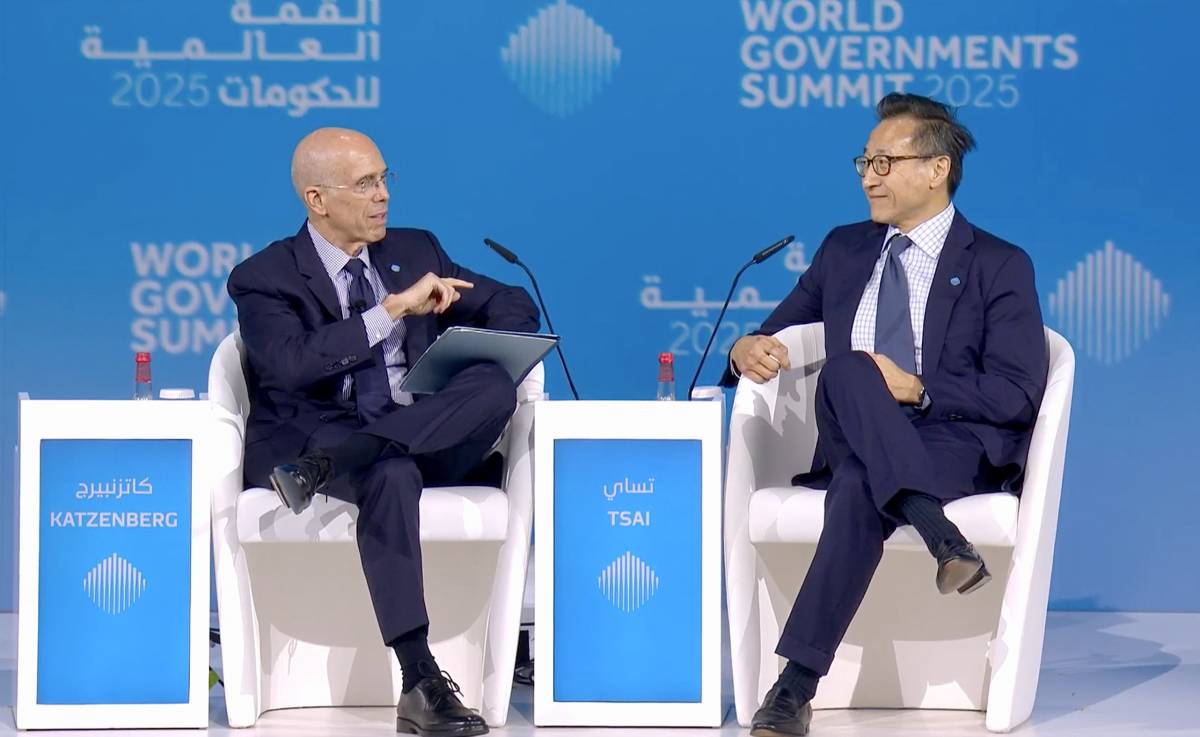Joe Tsai on AI: The Real Race is Adoption, Not Dominance
Joe Tsai emphasizes AI adoption over dominance, highlighting China's rapid integration and Alibaba's strategic partnerships, reshaping the AI race narrative.

Joe Tsai on AI: The Real Race is Adoption, Not Dominance
Alibaba Group Chairman Joe Tsai has characterized the global artificial intelligence (AI) competition, particularly between the US and China, as a marathon without a definitive winner. He emphasizes that the real victory lies in how swiftly and widely AI technology is adopted rather than who builds the most powerful models.
The AI Race: Not Winner-Takes-All, But Marathon
Speaking at the All-In Summit 2025, Tsai explained that defining success in AI by the sheer strength or scale of AI models — such as the US’s heavy investment in trillion-parameter models — misses the broader picture. Instead, the crucial factor is the speed and extent to which AI is implemented across businesses and society. He highlighted that while China may not be winning the “model war” technologically, it is leading in the actual application and benefits realized by people. This perspective challenges the prevailing narrative that AI competition is solely about supremacy in technological breakthroughs.
Tsai cited a recent survey showing that AI adoption among Chinese enterprises surged from 8% in 2024 to 50% in 2025, underscoring China’s rapid integration of AI into its commercial ecosystem. This trend, according to Tsai, is supported by China’s strategy of developing cost-effective, open-source AI models, which facilitates quicker deployment compared to the US approach that focuses on massive, resource-intensive models.
Alibaba’s AI Strategy and Practical Applications
Under Tsai’s stewardship, Alibaba has integrated AI deeply into its operations. He remarked that AI has significantly increased operational efficiency, reducing personnel needs in some functions and enabling innovations such as AI-assisted business reporting. Alibaba's development of the Qwen series of foundational AI models exemplifies the company’s commitment to advancing AI capabilities tailored for practical use cases.
In a recent collaboration, Alibaba Cloud partnered with NBA China to develop AI-driven applications enhancing live game viewing and fan engagement. The AI model, based on Alibaba’s Qwen series, will deliver real-time game highlights, player insights, historical data, and interactive content for NBA app users in China — a notable example of AI’s growing role in entertainment and sports.
US-China Dynamics and AI Cooperation Prospects
Tsai’s comments come amid intense US-China rivalry in AI technology but also suggest room for cooperation and coexistence. He underscored that AI is not a zero-sum game and that both countries can benefit from the technology’s vast potential in fields like medicine and biology. This stance reflects his broader view that AI development should focus on societal benefits and accelerated adoption rather than outright dominance.
Despite geopolitical tensions, Alibaba’s ongoing investments in AI infrastructure and partnerships indicate a pragmatic approach to navigating the competitive landscape. Jefferies analysts recently noted that Alibaba’s cloud revenue growth accelerated in Q3 2025, driven largely by AI demand and its comprehensive AI infrastructure support.
Context and Implications
Joe Tsai’s perspective is significant against the backdrop of escalating investments and strategic posturing by global tech giants and governments. The AI race often features headlines on breakthroughs in large language models and massive computational resources. However, Tsai’s emphasis on adoption and practical impact reframes the narrative to include:
- The democratization of AI through accessible and cost-effective models.
- The importance of real-world application across industries and everyday life.
- A long-term view of AI development as an evolving journey rather than a sprint.
This approach aligns with recent trends showing that AI’s transformative power depends not only on invention but on how quickly enterprises and societies integrate it to improve productivity, services, and experiences.
As Alibaba continues to push its AI initiatives domestically and internationally — exemplified by the NBA China partnership — Tsai’s message underscores a nuanced understanding of AI competition: it is not about a single winner but about who can harness AI’s potential to create tangible value fastest and most broadly.
Relevant Images for Article Illustration
- Joe Tsai Portrait – Official images of Joe Tsai, Alibaba Group Chairman and Brooklyn Nets owner, to visually anchor the article.
- Alibaba Logo – Identifying the company central to the discussion.
- Visuals of Alibaba’s AI Models and Cloud Infrastructure – Screenshots or conceptual graphics related to Alibaba’s Qwen AI series or cloud computing services.
- NBA China Collaboration – Images from NBA China events or Alibaba-NBA partnership announcements to showcase AI in sports engagement.
- AI Adoption in Enterprise – Infographics or charts illustrating the surge in AI adoption rates in China, supporting Tsai’s claims.
These visuals provide concrete context to the discussion of AI adoption and Alibaba’s strategic positioning.
In summary, Joe Tsai’s recent comments articulate a critical shift in thinking about AI: the race is not about creating the strongest AI in isolation but about who can implement and benefit from AI technology most effectively and rapidly. Alibaba’s efforts and collaborations exemplify this philosophy, marking a significant chapter in the evolving global AI landscape.



